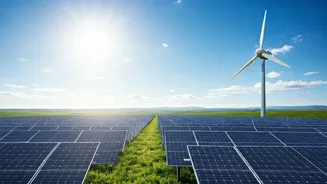Defining Sustainable Economies
Sustainable economies are those that prioritize the well-being of the planet and its people. This involves a careful balance between economic growth, environmental
protection, and social equity. These economies consider the long-term impact of their activities, aiming to meet the needs of the present without compromising the ability of future generations to meet their own needs. Key indicators of a sustainable economy often include factors like renewable energy adoption, efficient resource management, reduced carbon emissions, and social inclusion. It's a holistic approach, moving beyond simple profit margins to encompass a broader spectrum of societal and environmental values. The aim is to create a resilient economic system that can withstand challenges while fostering a high quality of life for all its citizens.
India's Position: The 2025 Ranking
While the specific methodology used to determine the top 10 is not provided, the article indicates that India's ranking in 2025 has been revealed. Without specific details from the original text, it's impossible to state India's exact position. However, it's implied that India has made significant strides in aligning its economic practices with sustainability principles. This suggests investments in areas such as renewable energy, sustainable agriculture, and efficient waste management. The ranking is a crucial indicator of a country's commitment to environmental stewardship and socially responsible practices. Further investigation into the specific ranking and criteria used would reveal the areas where India excels and where it has room for improvement.
India vs. Global Leaders
Comparing India's performance to that of the United States, the United Kingdom, and China offers valuable insights. The US, with its large economy and technological advancements, may lead in areas such as green innovation but could face challenges in reducing its carbon footprint due to its high consumption rates. The UK, known for its strong environmental policies and focus on sustainability, has a head start in various initiatives. However, it must also address its own legacy emissions and economic imbalances. China's sheer size and rapid industrialization create unique challenges and opportunities. Its investments in renewable energy and electric vehicles position it for a leadership role in green technology, although it still has substantial work to do regarding air and water quality. Comparisons highlight different paths to sustainability, influenced by factors such as government policy, technological innovation, and societal values. India's journey is unique and presents opportunities for learning and collaboration with these key players.
Key Drivers of Sustainability
Several factors contribute to a country's sustainability ranking. Investments in renewable energy sources like solar and wind power are critical. These reduce dependence on fossil fuels and mitigate climate change. Efficient resource management, including water and waste, is another crucial element. Implementing circular economy principles, such as recycling and reuse, can minimize environmental impact. Social equity, ensuring that all citizens benefit from economic progress, is also an essential component. This includes providing access to education, healthcare, and equal opportunities. Additionally, robust environmental regulations and effective governance play a vital role. These ensure compliance with sustainability goals and support long-term ecological balance. Furthermore, technological innovation in green technologies, such as electric vehicles and sustainable agriculture, supports overall sustainability.
Challenges and Opportunities
Every country faces challenges in its pursuit of economic sustainability. For India, these may include transitioning away from coal-based power plants, managing the increasing demand for energy, and addressing pollution in urban areas. Other challenges can come in the form of developing sustainable transportation infrastructure and promoting eco-friendly consumer habits. However, these challenges also create opportunities. They can stimulate innovation in green technologies and create new jobs in renewable energy, waste management, and sustainable agriculture. Investing in education and training can prepare the workforce for these emerging green sectors. Furthermore, international collaborations can facilitate knowledge transfer and access to funding for sustainable projects. India's commitment to sustainability provides a solid foundation for addressing its challenges, achieving its goals, and ensuring long-term environmental and economic prosperity.
Looking Ahead: The Future
The future of sustainable economies depends on continuous innovation, policy adjustments, and global collaboration. The need to accelerate the shift to renewable energy, improve resource efficiency, and prioritize social equity is even more critical. Governments, businesses, and individuals must work together to adopt sustainable practices and reduce their environmental impact. This includes adopting circular economy principles to minimize waste and maximize resource utilization. Furthermore, international cooperation is essential for sharing best practices and providing financial support for sustainable projects. Education and awareness campaigns will play a vital role in changing consumer behavior and promoting sustainable lifestyles. The 2025 rankings serve as a snapshot, indicating which economies are leading the charge. They will also provide valuable insights as the world strives to create a more sustainable and equitable future for everyone.














